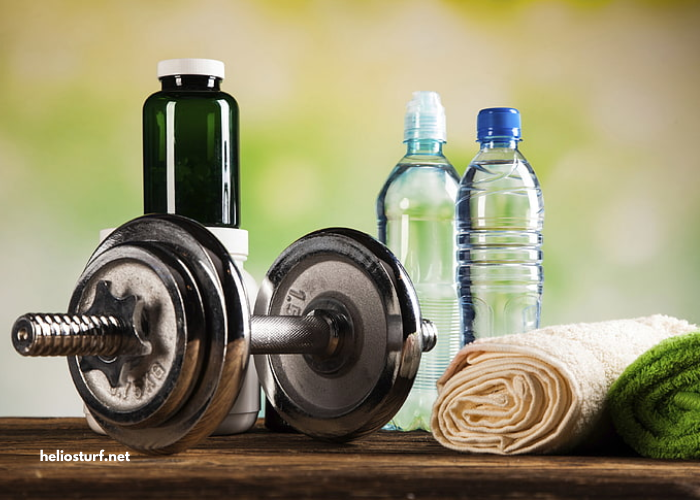
In today’s fast-paced world, many professionals find themselves juggling demanding careers with personal obligations, often at the expense of their health. The pressure to perform, meet deadlines, and maintain productivity can lead to poor lifestyle choices, such as skipping meals, inadequate sleep, and neglecting exercise. However, prioritizing health doesn’t require drastic changes. With intentional planning and smart strategies, busy professionals can cultivate healthy habits that enhance both physical well-being and career performance.
Why Health Matters for Professionals
Maintaining a healthy lifestyle is crucial for professionals aiming to achieve long-term success. Good health supports increased energy, sharper focus, better decision-making, and resilience under pressure. Neglecting health, on the other hand, can result in burnout, fatigue, chronic illnesses, and decreased work performance.
Key Healthy Living Habits for Busy Professionals
1. Prioritize Nutrition: Fuel Your Body and Mind
a. Plan Your Meals Ahead
Meal prepping and planning can save time and ensure you’re eating nutritious food throughout the week. Dedicate a couple of hours on the weekend to prepare meals rich in lean proteins, whole grains, vegetables, and healthy fats.
b. Opt for Healthy Snacks
Replace vending machine snacks with healthier options like almonds, yogurt, fruit, or protein bars. These choices help maintain energy levels and prevent the afternoon slump.
c. Stay Hydrated
Dehydration can affect focus and productivity. Carry a reusable water bottle and aim for at least 8 glasses of water daily. Limit sugary drinks and caffeine intake.
2. Incorporate Exercise into Your Routine
a. Make Time for Movement
Even with a packed schedule, it’s essential to incorporate physical activity. Aim for at least 150 minutes of moderate exercise per week. Short 10-15 minute workouts during breaks can be effective.
b. Choose Activities You Enjoy
Whether it’s yoga, cycling, brisk walking, or dance, pick a workout that you love to increase consistency.
c. Use Technology to Stay Active
Fitness apps and wearable trackers can help set goals, monitor progress, and remind you to move throughout the day
3. Prioritize Quality Sleep
a. Establish a Sleep Routine
Go to bed and wake up at the same time every day. A consistent sleep schedule improves overall sleep quality and helps regulate your body’s internal clock.
b. Create a Restful Environment
Keep your bedroom dark, cool, and quiet. Avoid screens an hour before bed, and consider using white noise machines or blackout curtains.
c. Limit Late-Night Work
Avoid working late into the night. Set boundaries to ensure work doesn’t interfere with sleep and recovery
4. Manage Stress Effectively
a. Practice Mindfulness and Meditation
Daily mindfulness practices, such as meditation or deep breathing, can reduce stress levels, improve concentration, and enhance emotional regulation.
b. Take Regular Breaks
Incorporate short breaks throughout the day to reset your mind. Step outside, stretch, or practice a brief breathing exercise.
c. Seek Support When Needed
Don’t hesitate to talk to a mental health professional if stress becomes overwhelming. Also, lean on your social support network for encouragement and advice.
5. Build Healthy Work-Life Balance
a. Set Clear Boundaries
Establish a firm boundary between work and personal time. Avoid checking emails outside work hours, and communicate your availability clearly.
b. Schedule Downtime
Just like meetings, downtime should be scheduled. Use this time to relax, pursue hobbies, or spend time with loved ones.
c. Delegate and Outsource
Don’t hesitate to delegate tasks at work or hire help at home. This can free up time and reduce stress.
6. Create a Healthy Workspace
a. Ergonomics Matter
Ensure your desk, chair, and screen setup promote good posture. Poor ergonomics can lead to chronic pain and fatigue.
b. Take Screen Breaks
Follow the 20-20-20 rule: every 20 minutes, look at something 20 feet away for 20 seconds to reduce eye strain.
c. Add Personal Touches
Incorporate elements like plants, inspiring quotes, or family photos to make your workspace more pleasant and motivating
7. Develop Mental Resilience
a. Embrace a Growth Mindset
View challenges as opportunities to learn. A growth mindset can improve problem-solving skills and reduce anxiety.
b. Reflect and Journal
Taking time to journal your thoughts, goals, and progress helps maintain perspective and encourages mindfulness.
c. Celebrate Small Wins
Recognize and celebrate achievements, no matter how small. This boosts confidence and motivation.
8. Foster Positive Relationships
a. Network Mindfully
Build meaningful connections with colleagues, mentors, and peers. Healthy professional relationships contribute to job satisfaction and mental health.
b. Maintain Social Connections
Stay in touch with family and friends. A strong social support system is key to emotional resilience.
c. Practice Active Listening
Improve your communication skills by truly listening, showing empathy, and being present in conversations.
9. Limit Digital Overload
a. Set Screen Time Limits
Too much screen time can lead to fatigue and sleep issues. Use apps or settings to monitor and limit screen usage.
b. Designate Tech-Free Time
Create tech-free zones or hours during your day, especially before bed or during meals.
c. Practice Digital Detox
Take short digital detoxes weekly to reconnect with the real world and recharge mentally.
10. Continue Learning and Personal Growth
a. Read and Educate Yourself
Make time to read books, listen to podcasts, or attend workshops. Continuous learning keeps your mind sharp and engaged.
b. Set Personal Development Goals
These goals give you direction and purpose outside of work. They also enhance your sense of accomplishment.
c. Stay Curious
Nurture your natural curiosity by exploring new topics, hobbies, or cultures.
Conclusion: Balance is the Key to Healthy Living
Healthy living for busy professionals is not about perfection but about balance. It involves making intentional choices daily that align with long-term wellness. By integrating these practical and sustainable habits into your routine, you not only enhance your physical and mental health but also improve your productivity, job satisfaction, and overall quality of life.
Remember, even small changes can have a big impact. Start today, stay consistent, and invest in your health – your most valuable asset.




